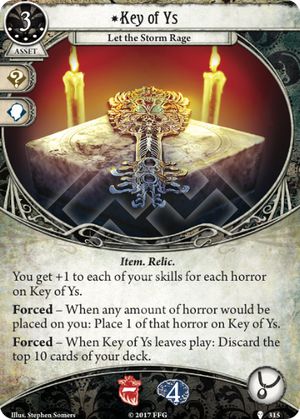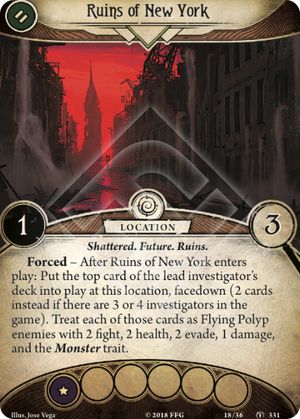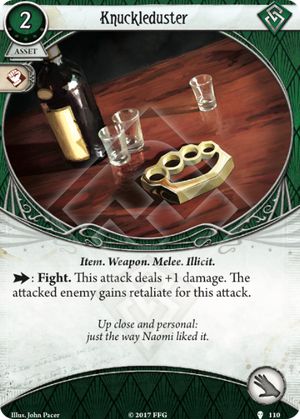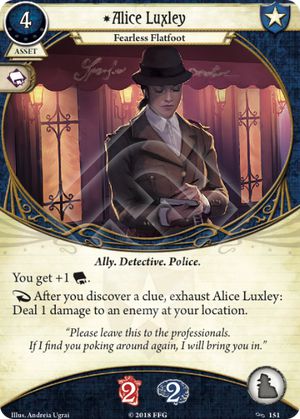
This card is a much more appealing option with the recent release of the Limited list, and may become the Level 0 weapon of choice for Guardians (at least for players who choose to apply the optional Machete changes). It's cheaper and arguably better than the .45 Automatic (one less damage-boosted attack, but a higher bonus to and continued marginal utility after the charges have been used). Mark Harrigan will still probably prefer the .32 Colt, but most other investigators with access to the Guardian card pool may prefer the all-around goodness of the Blade.
Note also that its Relic trait gives it great synergy with Dr. Elli Horowitz (another beneficiary of the Limited list thanks to the optional Dr. Milan Christopher change). I'm experimenting with a Dr. Elli/Relic package in a Joe Diamond deck (including Tooth of Eztli to ensure consistency with Dr. Elli), and so far the results have been very promising. It sort of operates as a Prepared for the Worst with a net cost of 0 and an extra sanity soak that puts the tutored weapon directly into play. It thins the deck and frees up hand slots for other key Seeker items (Magnifying Glass, Hawk-Eye Folding Camera) until Joe can find his Detective's Colt 1911s.



